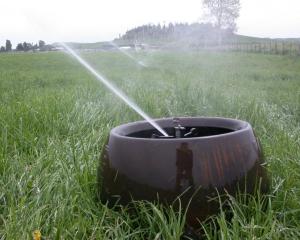Some of the basic water-safety messages are still not getting through - particularly to New Zealand men.
As an island nation, New Zealanders are engaged in a raft of water-based commercial enterprises and recreational activities - whether it be fishing, gathering seafood, swimming, boating, even the likes of fording rivers while tramping or driving.
There is no doubt there are risks involved, as nature can be powerful, unpredictable and unforgiving.
Even the best-prepared can be caught out, and freak accidents do occur.
But there is much that can be done to mitigate the risks, and sadly it is human decisions which all too often are responsible for the bad and sad outcomes detailed in this newspaper and other media throughout the country.
The South has had its fair share of drownings - as well as those deemed ''lucky'' escapes.
One of the most recent of these occurred in the sea off Otago Peninsula on January 5 when a trio of men were thrown into the water when their 5.5m aluminium pontoon was capsized in calm weather.
Luckily, fishermen saw the incident and a search and rescue operation was launched, although because of communication difficulties, it was in the wrong area.
The fact all were wearing life jackets proved vital, as they spent half an hour in the water before - also luckily - being picked up by a passing boat.
Search and rescue co-ordinator Senior Sergeant Brian Benn was in no doubt about the factors that contributed to their safe return: ''A couple of things saved their lives. One, they were wearing life jackets and two, the passing boat that picked them up'' but also commented that ''they weren't wearing their communications equipment ... so when the incident happened in a flash they lost their ability to communicate''.
Of course, other incidents do not have such happy outcomes. Sympathy is extended to families and friends who have lost loved ones to drowning, and it is important not to jump to conclusions or apportion blame in individual incidents when all the facts are unknown.
But it is impossible to ignore the fact that people still drown every year in this country because some of the basics appear to be ignored or forgotten.
One of the most basic is wearing life jackets. Another, particularly for boaties, is wearing communication equipment. Others include paying attention to the weather, informing others where boaties are going, and avoiding alcohol when going out on the water.
A day out with dad or mates on the boat, boogie boarding at the beach, water sports on the lake, protecting a prized fishing spot on the rocks, or splashing about in a home swimming or paddling pool are all quintessential aspects of a Kiwi lifestyle.
But our ''relaxed'' approach to our relaxed lifestyle comes at a cost measured in lives: 81 last year, 93 in 2012 and 132 in 2011. While the toll is tracking down, and last year's was the lowest since records began in 1980, Water Safety New Zealand says drowning is consistently the third-highest cause of unintentional death in New Zealand, a rate which puts us among the worst in the developed world.
And men dominate the figures.
There surely can be no excuses. A wealth of information and safety advice has been readily available for years - from television and print advertising, media articles and reports to print and online information.
Boating information is easily obtainable or read online from a variety of agencies such as Water Safety New Zealand, Maritime New Zealand, the New Zealand Marine Industry Association, Coastguard New Zealand and regional councils. Supervising children around water is essential.
Complacency appears to be a major issue.
Adults need to pay more attention to the safety messages, rules and requirements so they in turn can pass them on to our youngest water users. Luck should certainly not be the guiding factor in a day out on, in or near the water.




